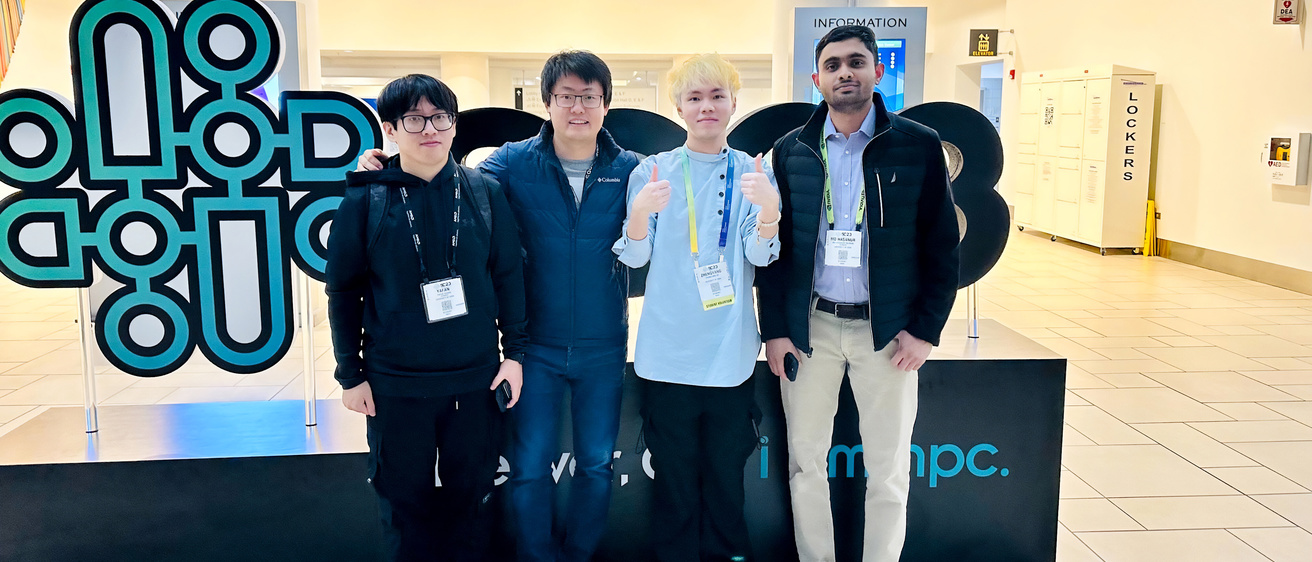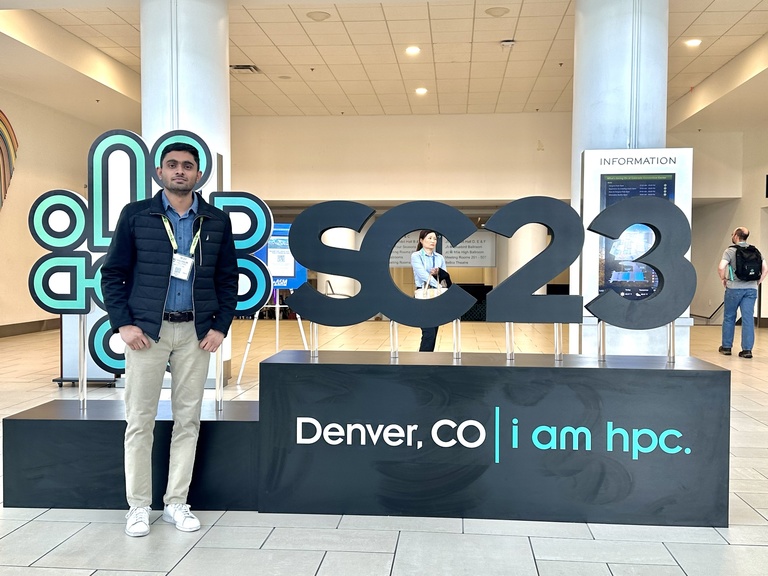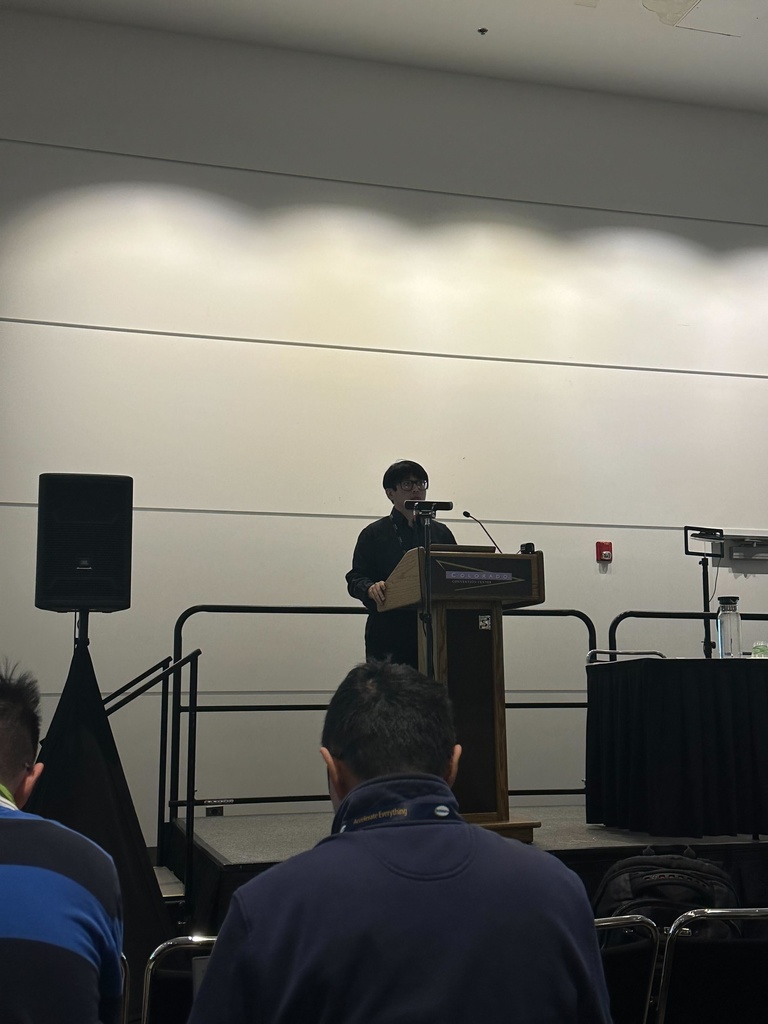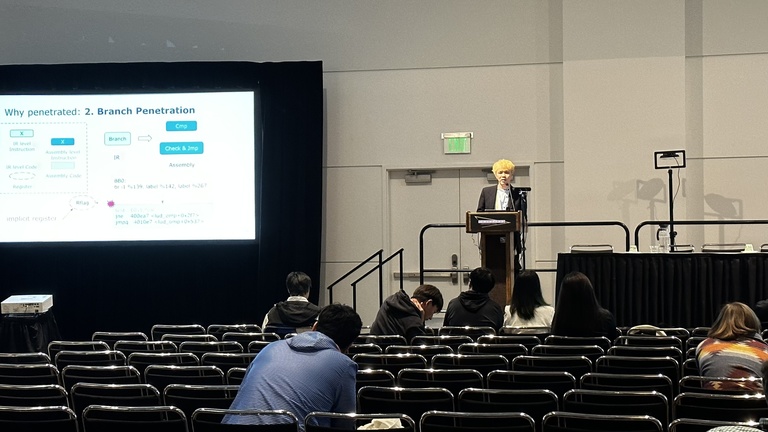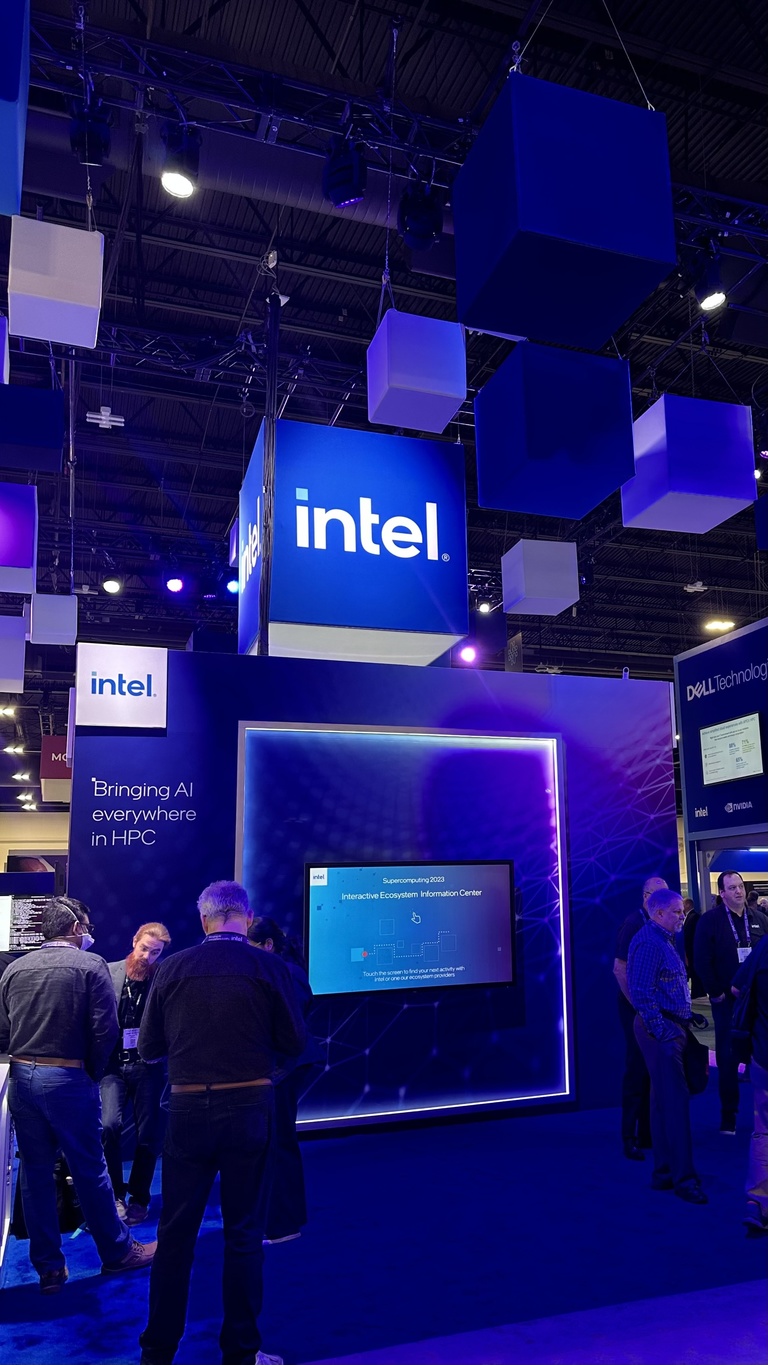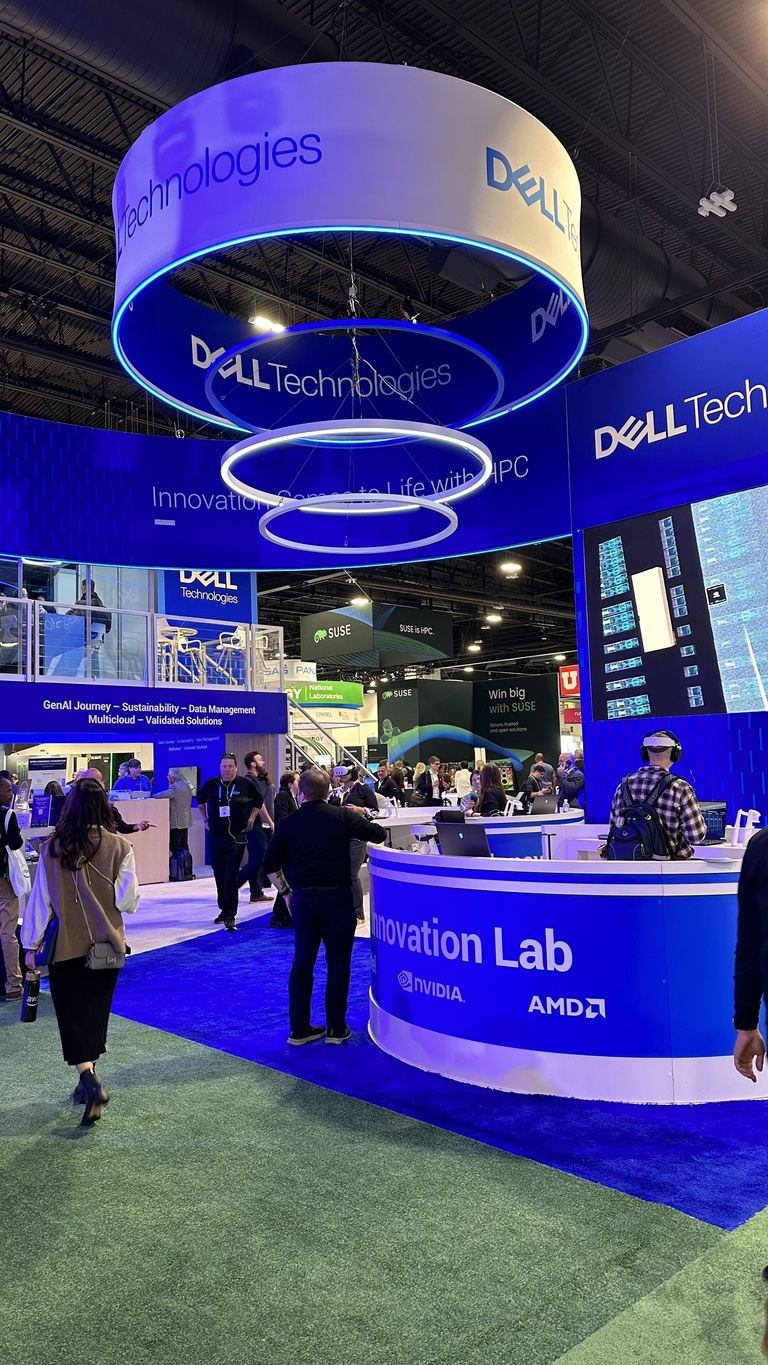In November, Yafan Huang, Md Hasanur Rahman, and Zhengyang He traveled to Denver, Colorado to attend SC’23, the International Conference for High Computing Networking, Storage, and Analysis. The three Ph.D. students were joined by their advisor, Guanpeng Li. In total, the University of Iowa CS group had three papers accepted to the conference, which were then presented in different sessions throughout the week:
-
Huang’s first-authored paper, “cuSZp: An Ultra-fast GPU Error-bounded Lossy Compression Framework with Optimized End-to-End Performance.”
“Specifically, this paper introduces an error-bounded lossy compression on NVIDIA GPU. By introducing a controllable error, users can reduce the data size drastically, mitigating the big-data issue in modern high-performance computing (HPC) systems.”
Yafan Huang
-
"LibPressio-Predict: Flexible and Fast Infrastructure for Inferring Compression Performance”, a paper Rahman co-authored with researchers from other universities in the Midwest and the Argonne National Laboratory.
"The motivation for designing this tool is that in recent years, people have worked hard to create systems that predict how well compression tools work without actually using them. However, because these efforts aren't well-coordinated, it's challenging to compare them. Therefore, this paper introduces a lightweight and extendable framework for describing, implementing, and comparing various heterogeneous prediction methods to predict compression performance.”
Hasan Rahman
- He, Huang, and Li’s paper, “Demystifying and Mitigating Cross-Layer Deficiencies of Soft Error Protection in Instructional Duplication”
“We had the privilege of presenting three papers at SC'23, each delving into important aspects of high-performance computing (HPC). Two of our papers revolved around the intriguing world of lossy compression, where we explored ways to efficiently compress data without losing critical information. The third paper focused on fault tolerance, a crucial topic in HPC, addressing methods to ensure the resilience of computing systems when faced with errors or failures.”
Zhengyang He
What was your favorite part about your week at the conference?
Rahman: “My favorite part [was] the technical presentation sessions. They offer a chance to discover cutting-edge research by fellow researchers. The breaks between sessions also provide opportunities to ask presenters follow-up questions and potentially connect with future collaborators.”
He: “My week at the conference was both enlightening and inspiring. The best for me was undoubtedly the technical presentation sessions. These sessions, which included morning and afternoon segments, offered an invaluable opportunity to immerse myself in cutting-edge research from fellow scholars. During the coffee breaks in between session, I had the chance to meet and engage with other researchers, asking questions and gaining deeper insight into their presentations.”
Huang: “My favorite part is the industry exhibitions. There are lots of fancy hardware released. For example, NVIDIA released the H200 Tensor Core GPU this year.”
What is one thing you learned or an idea you took away from your time at the conference?
Rahman: “In this year’s attendance, I learned about something new. Modern HPC systems are energy-intensive, and we’ve already consumed a considerable amount of resources. Our current practices have taken a toll on the environment. It’s crucial to express concern about the sustainability of future HPC systems. Therefore, it’s imperative to shift our focus toward green computing.”
Huang: “My strongest feeling is that do not be afraid to talk with others. If you have questions, just go and ask. Sometimes when you ask them, especially when you are combining your questions with other’s research fields, you can come up with something that you could never think about when you did research alone. Ideas are more like collisions between people’s thoughts.”
In your opinion, what value do conferences like SC’23 hold?
Rahman: “This conference is a prominent event in HPC, attracting over 14,000 attendees annually. Leading companies unveil their latest products, and cutting-edge research is showcased at CS. This event offers a unique-once-per-year opportunity to stay abreast of the latest developments in the field.”
He: “Conferences like SC’23 are invaluable. They serve as a hub where industry leaders showcase new products and where researchers present the latest findings. It’s a unique opportunity to stay at the forefront of both our field, but in terms of technology and research.”
Huang: “The conference builds a platform for people to communicate and discuss valuable questions in person. In-person discussions can build more close relationships with people compared to discussing online.”
What advice do you have for those interested in attending conferences?
Rahman: “Dedicate yourself to your research endeavors, striving diligently to publish your papers in esteemed conferences. The process of having your paper reviewed, accepted, and discussed at these conferences is immensely rewarding.”
He: “To CS students, I would emphasize the importance of diligence in their research efforts. Strive to publish your work in premier conferences like SC.”
